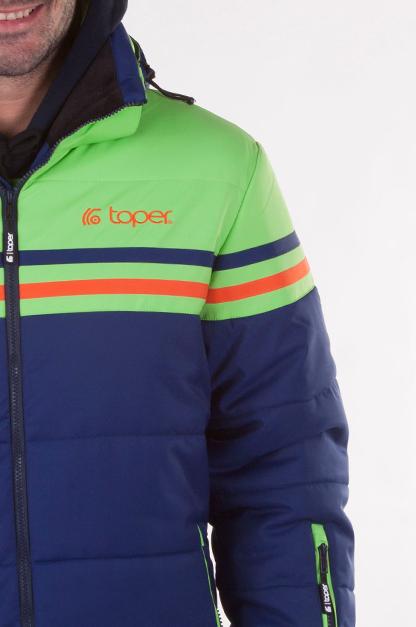
Consumer products from the Yugoslav era often had poor reputations; many were shoddily built, poorly designed, and just generally unappealing. But several Slovenian companies bucked the trend and launched products that easily held their own against Western competition. One such company was Toper, a sportswear manufacturer whose products are once again filling storefronts around the country.
Toper was founded in 1945, just months after the end of World War II. Even its name was austere: Toper was short for Tovarna Perila, meaning simply “Linen Factory.” At first, almost its entire lineup consisted of white shirts.
In the early 1950s, Toper found itself under new management, a team with greater ambitions for the company. Among those heading the company were a couple of former athletes who saw a market niche in the manufacture of sportswear. At first, Toper produced clothing for Western companies, but it soon began to sell products under its own brand as well. It also branched into jeans and underwear, but its brand became largely synonymous with attractive clothing for an active lifestyle. The company’s jackets – known as “Toprovke” – were just one of several products that took Yugoslavia by storm.
At its peak, Toper operated several factories and was one of the most popular brands in Yugoslavia. The company’s commitment to quality was legendary. In the late 1970s and throughout the ‘80s, Toper also received a boost from the Slovenian ski renaissance. A the time, both downhill skiers and ski jumpers suddenly found themselves near the top of world rankings, and Toper began to enjoy unprecedented visibility as the official supplier of the Yugoslav ski team. It joined the most prestigious brands on the international ski circuit, and in the years that followed, it relied on Western-style marketing to keep its product in the public eye. At the 1984 Olympics in Sarajevo, Toper supplied several national ski teams with sportswear. The company was at the top of its game.
Despite its sales successes, however, Toper was rarely well-off financially. Communist bureaucracy caused it to enter financial difficulties, first in the 1970s and then again in the 1980s. Poor management decisions and the loss of the Yugoslav market following Slovenia’s independence in 1991 proved fatal for the company. It went out of business in 1992, one of the first victims of Slovenia’s economic transition.
However, Toper’s story did not end there. In 2008, a Slovenian company purchased the brand and tried to revive the old product line. After a promising start, the project turned out to be a failure, but in 2013, a Bulgarian company made a second attempt at reviving the brand.
New management now aggressively promoting Toper products among young people, hoping that the sportswear manufacturer will be able to win over a new generation of users with Toper’s vaguely retro, yet contemporary appeal. It has even turned to a time-proven marketing approach by engaging well-known athletes to promote Toper sportswear. The company is hoping not just that the brand will become as widespread and a popular as it once was – but that the new Toper will also find the long-term financial success that had so often eluded its legendary predecessor.


































































